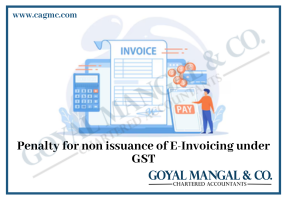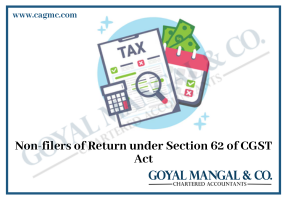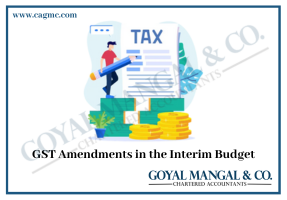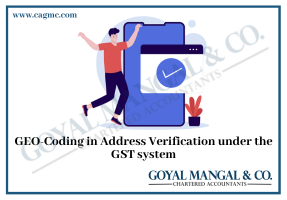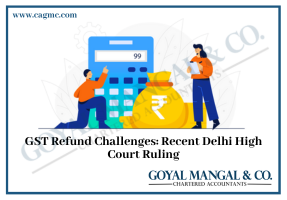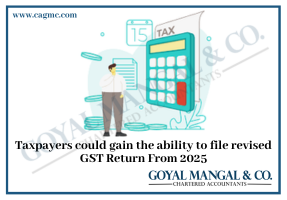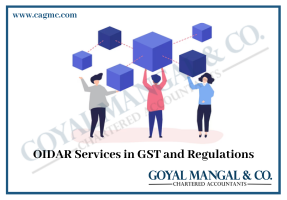
The Goods and Services Tax (GST) Composition Scheme is a boon for small businesses, offering them a simplified tax structure and reduced compliance burdens. By opting for the scheme, businesses can avail themselves of lower tax rates and streamlined processes. However, despite its advantages, there are certain pitfalls that businesses must avoid to ensure smooth operations and compliance. In this article, we will explore 7 Mistakes to Avoid Under GST Composition Scheme that businesses should steer clear of when operating under the GST Composition Scheme.
|
Table of Content |
Short note on GST Composition Scheme
The GST Composition Scheme is a simplified tax scheme designed for small businesses to reduce their compliance burden and pay tax at a lower rate. The GST Composition Scheme is available to small taxpayers with an annual aggregate turnover below a specified threshold (varies by country). It provides certain benefits, such as lower tax rates, reduced compliance requirements, and ease of doing business.
Under the scheme, businesses are required to pay a fixed percentage of their turnover as tax instead of the regular GST rates. The exact rate varies by country, but it is typically lower than the standard GST rates. However, there are certain eligibility criteria and conditions that businesses must meet to avail of the composition scheme. These criteria may include restrictions on the nature of business activities, turnover limits, and interstate sales limitations.
Businesses registered under the composition scheme are not allowed to charge GST on their supplies. Instead, they need to issue a bill of supply that does not include any tax component. Furthermore, they are not eligible to claim input tax credit (ITC) on their purchases.
7 Mistakes to avoid under GST Composition Scheme
There are several mistakes that businesses should avoid to ensure compliance and avoid penalties. Here are seven mistakes to avoid under the GST Composition Scheme:
- Ineligible Businesses: One common mistake is applying for the composition scheme when your business is not eligible. Certain businesses, such as service providers, e-commerce operators, manufacturers of exempt goods, and interstate sellers, are not eligible for the composition scheme. Ensure that your business meets the eligibility criteria before opting for the scheme.
- Crossing the Turnover Limit: The composition scheme is available for businesses with an annual aggregate turnover of up to a specified threshold (currently set at Rs. 1.5 crores in India). If your turnover exceeds this limit during a financial year, you must exit the composition scheme and transition to the regular GST regime. Failing to do so can result in penalties and additional liabilities.
- Failure to Issue Tax Invoice: Even though composition scheme taxpayers are not required to charge GST on their supplies, they need to issue a bill of supply instead of a tax invoice. Many businesses make the mistake of issuing tax invoices, which can lead to compliance issues. Ensure that your invoices are correctly labelled as “bill of supply” to avoid complications.
- Non-Payment of Tax on Purchases: Under the composition scheme, businesses are not allowed to claim ITC on their purchases. However, if you purchase goods from regular taxpayers, they will charge you GST, which you must pay. Failing to pay GST on purchases can lead to penalties and scrutiny from tax authorities.
- Interstate Sales or Branches: If your business has interstate sales or multiple branches across different states, you are not eligible for the composition scheme. Businesses under the composition scheme are restricted to operating within a single state. Make sure to assess your business structure and activities to ensure compliance with this requirement.
- Non-Maintenance of Proper Records: Although the composition scheme simplifies tax compliance, it does not exempt businesses from maintaining proper records. It is crucial to maintain accurate records of all transactions, including sales, purchases, and expenses, to facilitate easy audits and avoid penalties for non-compliance.
- Failure to Display Composition Scheme Details: Businesses registered under the composition scheme must display a signboard with the words “Composition taxable person” at their place of business. This helps customers and tax authorities identify businesses operating under the scheme. Failure to display this signboard may result in penalties.
Advantages of the GST Composition Scheme
Here are the advantages of the GST Composition Scheme:
- Verify eligibility: Ensure that your business meets the eligibility criteria before opting for the composition scheme to avoid any complications.
- Monitor turnover: Stay vigilant about your annual turnover and promptly transition to the regular GST regime if it exceeds the threshold to avoid penalties.
- Issue correct invoices: Remember to issue a bill of supply instead of a tax invoice to accurately reflect your status as a composition scheme taxpayer.
- Pay tax on purchases: Even though you cannot claim input tax credit, ensure you pay GST on purchases from regular taxpayers to remain compliant.
- Assess interstate sales and branches: If you engage in interstate sales or have branches across different states, the composition scheme may not be suitable for your business. Evaluate your structure and activities accordingly.
- Maintain proper records: Although the scheme simplifies compliance, record-keeping is still essential. Maintain accurate records to facilitate audits and demonstrate compliance.
- Display composition scheme details: Adhere to the requirement of displaying the “Composition taxable person” signboard at your business premises to avoid penalties.
Takeaway
The GST Composition Scheme offers small businesses an opportunity to simplify their tax compliance and benefit from reduced tax rates. However, to make the most of this scheme and avoid penalties or compliance issues, it is crucial to steer clear of common mistakes. By avoiding these seven mistakes, businesses can ensure smooth operations and maximize the advantages of the GST Composition Scheme.
